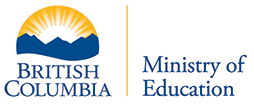
Unit Plan: Who Am I?
Social Studies / Grade 10-12
Big Ideas
Social Studies 10
- Worldviews lead to different perspectives and ideas about developments in Canadian society.
BC First Peoples 12
- The identities, worldviews, and language of BC First Peoples are renewed, sustained, and transformed through their connection to the land.
- The impact of contact and colonialism continues to affect the political, social, and economic lives of BC First Peoples
- Cultural expressions convey the richness, diversity, and resiliency of BC First Peoples.
Comparative Cultures 12
- Understanding the diversity and complexity of cultural expressions in one culture enhances our understanding of other cultures.
- Interactions between belief systems, social organization, and language influence artistic expressions of culture
Contemporary Indigenous Studies
- The identities, worldviews, and language of indigenous peoples are renewed, sustained, and transformed through the connection to the land.
- Indigenous peoples are reclaiming mental, emotional, physical, and spiritual well-being despite the continuing effects of colonialism.
- Indigenous peoples continue to advocate and assert rights to self-determination.
Comparative World Religions
- Comparing beliefs provides insights and understanding of diverse global cultures and peoples.
Law Studies
- Understanding legal rights and responsibilities allows citizens to participate more fully in society.
- Laws can maintain the status quo and can also be a force for change.
- A society’s laws and legal framework affects many aspects of people’s daily lives.
Social Justice
- Social justice issues are interconnected.
- Individual worldviews shape and inform the understanding of social justice issues.
- The causes of social injustice are complex and have lasting impacts on society
Concepts:
- Personal Identity
- The factors that determine identity either personally, community, or institutionally
Essential Questions
Students will keep considering…
- Who defines a person’s identity, the individual, the community or institutions?
Evaluative Criteria
N/A
Monitoring Progress
Teacher will monitor progress:
Teachers can monitor progress through ongoing formative assessment including but not limited to:
- Class discussion
- Group and pair discussions
Resources
AUDIO
- Kathleen Merritt – Not Inuk Enough to be Inuk
- Kathleen Merritt – IVA Music
- Kathleen Merrit – National Arts Centre
- Throat Singing
- Trudeau Swearing In: Throat Singers
- What is Throat Singing
- Album: Icelines and Sealskins
TEXTS
- Josiah Wilson Status Indian player barred from All Native sports event
- Josiah Wilson, the Indian Act, hereditary governance and blood quantum
- Indigenous basketball player Josiah Wilson wins human-rights case
- All Native basketball tournament reinstates adopted player, drops ‘bloodline’ rule
- Wab Kinew | Globe and Mail
- Author Joseph Boyden’s shape-shifting Indigenous identity
- My Name is Joseph Boyden
- NVSD Seeing Both Sides
- “Legend of the Sugar Girl” in Born with A Tooth by Joseph Boyden
VIDEO
Reflection
How will teachers and their students reflect on and evaluate the completed project?
Teacher Reflection
- What aspects of the unit went well?
- What did students struggle with?
- What did you struggle with?
- What would you add/revise the next time you taught this unit?
- Were there any unintended outcomes?
- Were students engaged?
Downloads
Unit Overview
Subject
Social Studies
Topic
Who decides a person’s identity?
Unit Overview
This lesson on identity is designed to span over two classes and allows students to examine the concept of identity through a critical lens to understand differing world views of identity. The lesson starts with the identity as individuals, then shifts to the community and then to a national level by examining three case studies.
The two day lesson is scaffolded to allow students the opportunity to examine and discuss specific case studies and apply critical thinking skills.
Grade
10-12
Unit Duration
2 classes
Related Big Ideas
N/A

The following resources are made available through the British Columbia Ministry of Education. For more information, please visit BC’s New Curriculum.
Big Ideas
The Big Ideas consist of generalizations and principles and the key concepts important in an area of learning. The Big Ideas represent what students will understand at the completion of the curriculum for their grade. They are intended to endure beyond a single grade and contribute to future understanding.
Core Competencies
 Communications Competency
Communications Competency
The set of abilities that students use to impart and exchange information, experiences and ideas, to explore the world around them, and to understand and effectively engage in the use of digital media
 Thinking Competency
Thinking Competency
The knowledge, skills and processes we associate with intellectual development
 Social Competency
Social Competency
The set of abilities that relate to students’ identity in the world, both as individuals and as members of their community and society
Curricular Competencies & Content
Curricular Competencies are the skills, strategies, and processes that students develop over time. They reflect the “Do” in the Know-Do-Understand model of curriculum. The Curricular Competencies are built on the thinking, communicating, and personal and social competencies relevant to disciplines that make up an area of learning.
Additional Resources
First People's Principles of Learning
To read more about First People’s Principles of Learning, please click here.
For classroom resources, please visit the First Nations Education Steering Committee.
